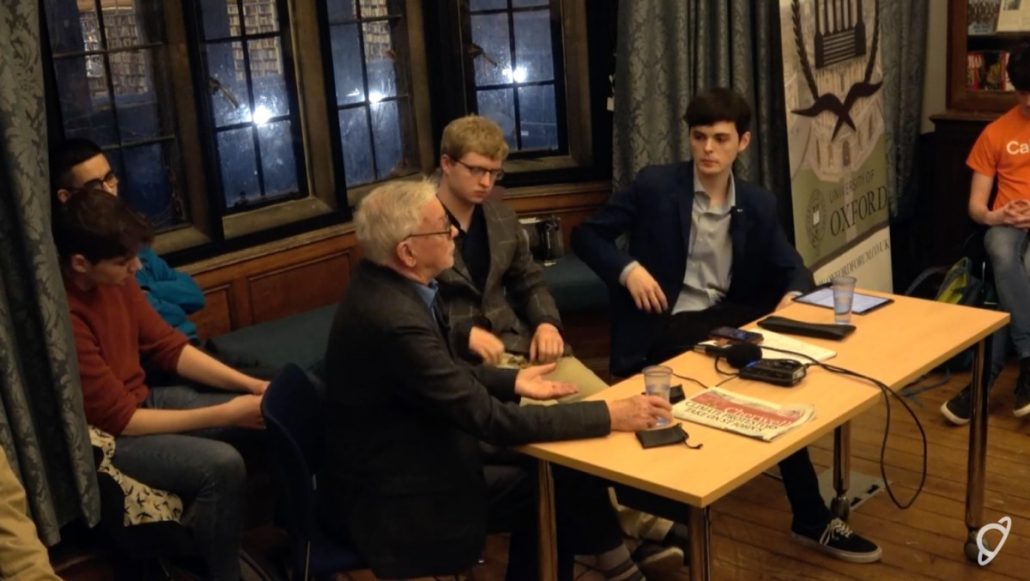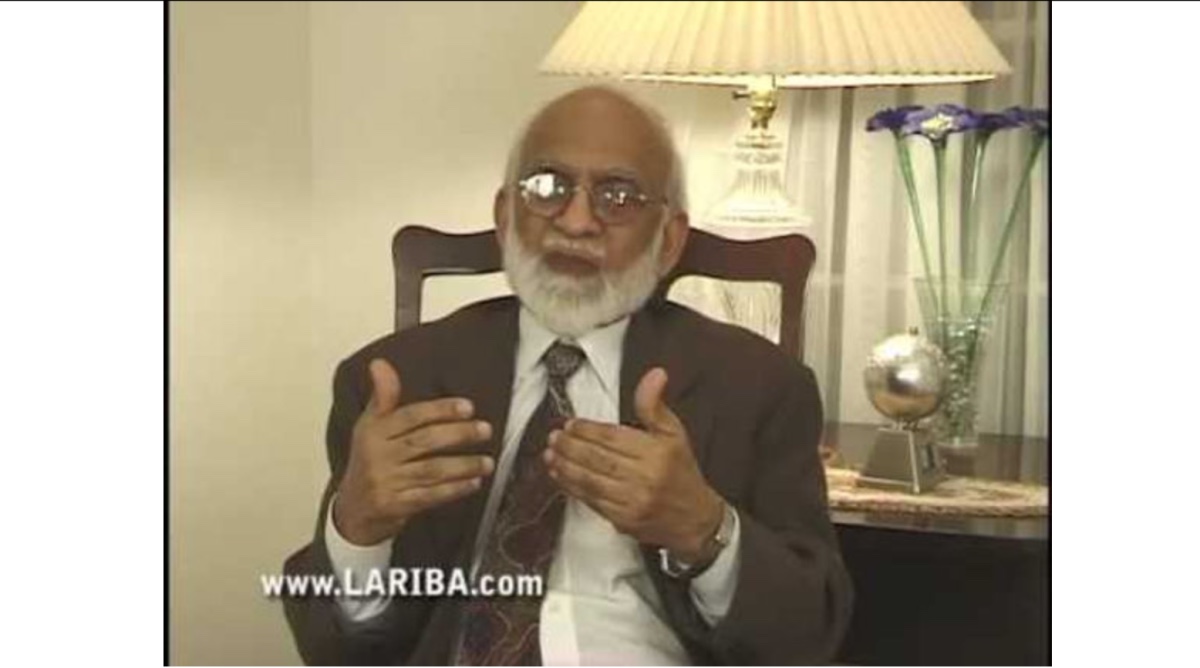A Muslim Reviews Atheist-Christian Debate on Religion and Morality
By Yousuf Ali
Early in 2020, Atheist YouTuber Alex O’Connor debated Christian Philosopher Dr. Keith Ward on the motion “Morality without Religion is Bankrupt. I will give my commentary and review in the form a follow-along review marked by time stamps. By pausing at the end of the stated timestamp, you will keep up with my thoughts and where they come into play in the debate. Before that, I would like to say this about the motion: it is poorly worded because religion at its most basic definition is a system through which humans assign morals, meaning and value to the world around them. Furthermore, religion is not necessarily theistic.
For example, BBC classifies humanism as a religion. With this in mind, the wording of the motion is equivalent to “Morality without a System of Morals is Bankrupt”. Of course, you can see that sentence is trivial on its face. That said, the debaters essentially ended up debating whether or not “Morality without God is bankrupt”, which is a far more interesting and contentious topic. On that note, let’s get into it.
Here is the link to the debate video:
0:00-1:30:
Professor Ward, seemingly cognizant of the issues of definition which I also saw, defines the terms to more clearly focus the subject of the debate. I generally agree with the restriction of religion to Abrahamic faiths which in turn lead to theistic origins of morality.
1:31-2:55:
Ward further focuses the debate on “theistic religion” and points out that John Stuart MIll, the main formulator of utilitarianism, believed that his philosophy only worked with a God. this is intriguing because most generally associate utilitarianism with secularism and atheism, but the further question seems to be “why care about the consequences of one’s actions without a God to whom all answer?”
2:56-:4:39:
Here professor Ward does a good job of distinguishing between subjective and objective morality. He is not denying that non-religious people can be morally good, but only in a subjective sense in which they have no authority to say that their way of doing things is better than others’. In professor Ward’s view, this type of morality is bankrupt.
4:40-6:00:
Ward explains how naturalism which in turn is associated with atheism essentially is incompatible with objective morality. That is because morality entails value judgments that are not subject to sensory observation, and are therefore out of bounds for a naturalist. At best, a subjective sense of morality can be achieved but without any way to discover it in the natural world, non-religious people don’t have a source of morality.
6:01-7:53:
Here he re-emphasizes the point that a pure naturalist view of the world can’t say whether or not morally prescriptive statements are true for the simple reason that they are not subject to scientific inquiry. No amount of forensic analysis or autopsies can tell one whether or not it was wrong for Person x to poison person b but only if person b was poisoned and how they were. Ward also brings God into it as the best grounding for morality as a personal being with knowledge of necessarily true moral truths as a solution to the Euthyphro dilemma.
7:54-9:54:
Further emphasizing the point of God, WArd says that the way to have objective morality is to ask ourselves what God wants us to do. Without God, this amounts to nothing more than a thought experiment that a non-religious person can do with no binding or objective consequences. Additionally, he mentions that a personal being would have the ability to make prescriptive moral judgments unlike the natural world around us, and we would actually be bound by them as he is the source of all things.
9:55-11:37:
Ward concludes by reiterating the point that without God, morality has no objective motivation, and even people like Kant who came up with elaborate theories like the categorical imperative to rationally explain morality had to ultimately fall back on God as the reason why anyone should care about being moral.
11:38-12:48:
Alex is technically right that the burden of proof is not upon him to provide an atheistic account of morality as he is not the proposing speaker. That said, if I were a non-religious person looking for a reason to be moral, I would temper my expectations.
12:49-14:05:
He says that it is not possible to know that all atheistic accounts of morality are bankrupt. Unless I missed something, that’s exactly what Ward did in his opening statement by presenting theories of morality typically adopted by Athesits like utilitarianism and explaining that no one has any reason to care about them without the knowledge of God taking them out of the realm of human subjectivity to objectivity.
14:06-16:23:
Alex gives several examples including corporal punishment of children and homosexuality, where religion has allegedly been morally outclassed by secularism. This simply seems to be reasoning backward from particulars rather than principles. In other words, he is simply begging the question that the alleged religious views are wrong as opposed to the prevailing western ethos. And more importantly, even if Alex were to demonstrate that religion is wrong on these things, the question remains, “why should we care without a God to make these things objectively right or wrong?”
16:23-18:09:
Alex essentially complains that certain aspects of religion go against what he terms to be moral progress. Again, to speak about moral progress requires an objective standard of right and wrong. Furthermore, why assume that the people in the past got these and other issues wrong. I’m thinking that someone without an objective measuring stick for morals should be more humble before reflexively dismissing the practices of those who came before, who at least had reasons to care about right and wrong, even if they may have been incorrect on some of the particulars.
18:09-20:49:
So far, all Alex has done has assumed the modern western secular ethos to be correct as a method of demonstrating the motion is wrong. He correctly says that he all needs to do is present a plausible account of non-religious morality but as far as I can tell, he has not done that, and without that, the question remains “why should the mere fact that historical religious views differ from modern secular views mean that the latter is correct and the former is wrong, and why should we even care?”.
20:49-21:34:
In my opinion, Ward shouldn’t have even bothered correctly pointing out that O’Connor’s account of moral history is simplistic, but should have asked how does he know things like homosexuality are right and if they are, why should we even care without a God who knows whether or not they are wrong.
21:34-22:54:
Ward continues by essentially saying that Alex is cherry-picking the good things about secular morality without considering the literally millions of people killed by non-religious regimes in the last century and focusing on the bad things religion has done. I’d take it a step further and say Alex is cherry-picking, but not by what is right and wrong; rather, he is assuming modern western secular sensibilities to be a standard of morality and cherry-picking based on those. Without first proving this zeitgeist to be objectively right, he is in no position to cast judgment against religion.
22:54-23:58:
Here O’Connor tries to wash his hands of the Soviet Union by claiming that it was not actually secular since it was discriminatory against religion. This is simply a sleight of hand. The fact was it was an anti-religious government that committed atrocities on a scale never seen before.
23:58-25:06:
Here Ward and O’Connor have an exchange regarding the morality of homosexuality. In my opinion, Ward is being unnecessarily conciliatory, he shouldn’t concede that traditional religious views on the subject are wrong unless Alex gives an objective reason for doing so. At the same time, I want to focus on a claim that no secular system of morality could justify being against homosexuality. I strongly disagree. Let’s take utilitarianism which is, in brief, the idea that what is right or wrong is based on whether or not an action causes more harm or benefit.
For example, the CDC outlines several negative medical consequences which homosexuals are more likely to receive than their heterosexual counterparts. Of course, we can debate about the reasons why this is, but that doesn’t change the fact that utilitarian principles would consider homosexuality morally inferior to heterosexuality because the former has been demonstrated to be more harmful than the latter. That said, this isn’t why I was a Muslim who would object to homosexuality. I would do so because my religion generally warns against harm and specifically against sexual immorality, which it considers homosexuality to be a subset of, but that is a topic for another day. Perhaps, Alex should consider the fact that a lifestyle as dangerous as homosexuality is considered moral in his current cultural context as a reason to doubt whether or not he should use that culture as a measuring stick for others.
25:06-29:06:
Here the conversation starts to redirect towards the important question about whether or not Atheists have a reason to be moral. Unfortunately, there have been several tangents relating to homosexuality and amoral history which have distracted from this.
29:06-29:31:
O’Connor claims that “there is no contest” that Atheists who do things because they believe them to be right are better than religious people who do these things because they believe them to be God’s will. I am afraid this simply reduces to an empty assertion that objective morality is inferior to subjective morality as Professor Ward will point out soon.
29:31-31:10:
Here they discuss the Euthyphro dilemma with Keith Ward saying that we know what is good independently of God. I don’t agree with Ward on this point, but do agree the question is why should people care about the source of morality without God.
31:10-32:47:
In this, they discuss whether or not descriptions of God’s moral character have normative import. This is basically Alex saying that why should we be good if there is a God.
32:47-35:49:
To this discussion, I would simply say that people are free to do or not do what God wants, but those who do evil should be warned that this will likely lead to separation from God which will be painful.
35:50- 39:45:
Ward points out that having a source of morality independent of the natural world gives people a reason to be good even if it means negative worldly consequences. He gives examples of politicians with good intentions who are stonewalled by their more cynical colleagues. Eventually, they will ask themselves why to continue if there is no benefit to me. Having the backing of the creator of the world provides motivation independent of however badly people may oppress you.
39:45-42:00:
Here O’Connor attempts to equate atheist subjective conceptions of morality based on pleasure with religious people who do good things because God will reward them. The key difference is that having God in the picture takes morality out of the round of human subjectivity to cosmological reality in which truth no longer consists only of descriptive statements of the universe but prescriptive statements about how we should deal with it.
42:01-47:54:
The exchange ends with another debate whether or not subjective moral views are bankrupt. Not much more I have to add but what I wrote already. Let’s proceed to the Q/A.
47:54-51:42:
A questioner. asks why can’t a non-religious person affirm the existence of values without God. The answer Ward gives is that it is theoretically possible but affirming the existence of the good looks suspiciously like God in that it is supernatural because virtues are not found in the physical universe. I’d add that this is simply coming up with a new religious view that involves non-religious people picking which parts of God they want, namely all the things they like, and discarding the things that they do not. To me, that seems to be a new religion in that it deals with imposing value judgments on the religion from a supernatural source.
51:42-58:02:
Ward gives the example of atheist utilitarian philosopher Peter Singer who develops an elaborate moral view but admits that it is preference-based. The response is that other people can disagree with his preferences and therefore becomes worthless without God to ground it as the premiere utilitarian philosopher John Stuart Mill acknowledged.
58:02-1:01:16:
My response to this exchange between Alex and the questioner is that yes Alex is right that for Ward to win the debate he’d have to show that there is something about all non-religious forms of morality which are bankrupt. At the same time, he does more than just argue that there could be a plausible account of morality from a non-religious point of view. He actually moralizes about many of the alleged defects of religion. In order to be doing more than simply begging the questions, then the questioner is right about him not only having the burden of showing his view to be true but also demonstrating why we should care
1:01:17-1:02:55:
Once again, we come back to the issue of homosexuality. Alex simply takes it as a given that it is moral. As stated before, there are strong utilitarian grounds to be opposed to it. Of course, this doesn’t prove or disprove religious morality, but he should not be so self-assured about his own moral sensibilities if they lead him to endorse such a dangerous lifestyle.
1:02:56-1:07:16:
The debate ends with a brief exchange on the distinction between describing things as good and talking about whether or not there are prescriptive statements that can be derived from them. My answer to the “so question” from Alex is that without a God to hold everyone accountable, there is no ultimate answer to the “so what?” question. This is something that has been acknowledged by the original formulators of the systems of morality which Atheists appeal to as an alternative to religious systems of morality.
TL;DR:
Professor Ward (the Christian) actually spent most of his time speaking to issues of substance and importance whereas Alex O’Connor (AKA Cosmic Skeptic) was more concerned with technicalities, begging the question and tertiary issues rather than trying to establish a reason to be moral sans religion or god. Technically, Alex was right in saying that the burden of proof was not upon him as he was in opposition, but if I were an atheist looking for a non-religious alternative to morality from this debate, I would not have it. Furthermore, Alex did not merely say that “there could be an atheistic source of morality” but made several moral judgments against religion without proving a basis for such moralizing.





















2021
4,213 views
views
0
comments